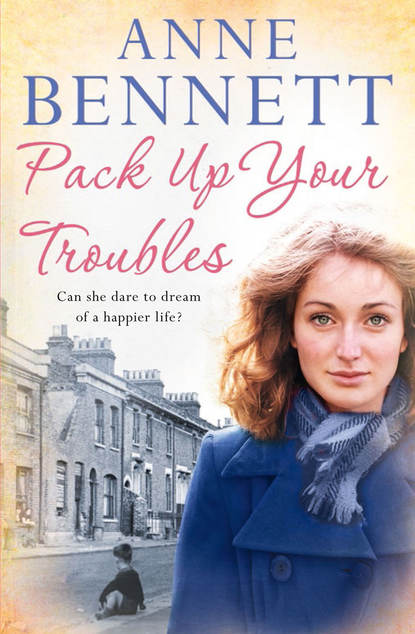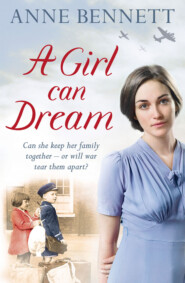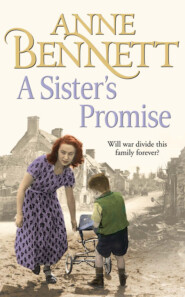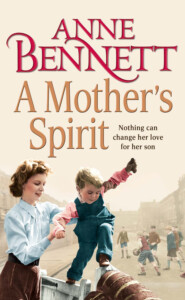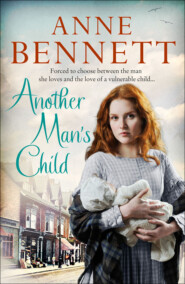По всем вопросам обращайтесь на: info@litportal.ru
(©) 2003-2024.
✖
Pack Up Your Troubles
Автор
Год написания книги
2018
Настройки чтения
Размер шрифта
Высота строк
Поля
‘Come on,’ Brendan said. ‘The only one in your head should be me, my darling girl, and certainly not those down-and-outs. My throat’s as dry as dust and I want a drink.’
Maeve didn’t very much like the pub to which Brendan took her, but she quite liked the port and lemon he bought her. In fact she liked it so much she drank it down almost at once and Brendan smiled at her.
‘It’s not pop, you know. Treat it with care.’
Maeve remembered the brandy she’d had on the boat and how the Irish woman had said something similar. ‘I’m not used to alcohol,’ she said.
‘Well, that’s obvious,’ Brendan said. ‘I’ll buy you another and you sip it this time.’
Maeve did sip it, but the unaccustomed drink made her feel peculiar and a little giggly, and as they made their way to the tram, she confessed to Brendan that her head felt swimmy. Brendan was pleased; he wanted Maeve in a compliant mood that night.
The café was in darkness and there wasn’t a soul about as they stole up the stairs to Maeve’s flat, and once inside Brendan pulled Maeve on to the settee beside him. Suddenly it didn’t matter to Maeve that Brendan hadn’t asked her to marry him. He would, she was sure, in time, and until then . . . After all, he’d been so kind to her and so generous. She didn’t repel Brendan’s groping fingers, nor the kisses that she seemed to be drowning in.
But then at the last moment she pulled back and Brendan let out a howl of agony. He felt as if his crotch would explode and he knew by Maeve’s wild eyes and breathlessness that she wanted it as much as he did. No pleading would shift her, and Brendan thought of taking her by force, but knew it would destroy everything between them if he did.
But Maeve too had been shaken and was frustrated and unhappy. It was getting harder and harder to refuse Brendan when she wanted it so much herself. She’d never in her life felt the hot shafts of desire that Brendan induced in her and knew that eventually she would give in to him.
Brendan knew it too, but he didn’t know how long it could take to break Maeve from her upbringing and the moral confines of the Church, and wasn’t at all sure he could last out that long. However, despite his deep desire for Maeve, he’d had no intention on God’s earth of marrying her in the beginning.
He’d had no intention of marrying anyone. He’d never known a happy marriage – certainly his own parents’ had been no advertisement for blissful contentment. All his brothers had gone down the same road and he’d seen the lifeblood squeezed out of them with their demanding wives and houses full of screaming brats. He had no use for children.
He was the eldest in his family and each child his mother had had after him had meant less attention for himself. He’d felt further and further pushed away as the younger ones got what care and love there might be, though there was precious little of either.
There had been no time at all for his father either. His mother just seemed to regard him as a walking pay packet. She’d never been satisfied with the amount he’d given her every Friday night. Small wonder, Brendan thought, his father had felt the need to smack her about now and then. Brendan had certainly seen no harm in it. She was a moaning bloody nag, like most women, and he agreed with his father that they all needed teaching a lesson a time or two. A man had to be master in his own house.
He’d decided long ago that he’d share his money with no woman. He worked for it and he’d choose how it was to be spent. Brendan was the only one left at home. His mother cooked his meals and washed and ironed for him, and he paid keep, which she was always bloody grateful for. He always had enough left to buy as many fags as he wanted, a bellyful of beer as often as he liked and to place a bet if he had the mind to. He thought his brothers fools and saw marriage as a trap.
He didn’t live like a monk either. He had plenty of money to jingle in his pocket and buy drinks for those willing to please him, and he found there were women enough to accommodate him if he was that way inclined. He used to boast he’d never had to pay for sex. After a good night out most were only too grateful for a bit of slap and tickle, and Brendan always admitted to it later in confession and got absolution. He saw no reason for his life to change. That was until he met Maeve Brannigan.
That night, with his whole body on fire, he faced the fact that to have Maeve he had to marry her, for his need for her had got between him and his reason. And so he proposed.
Maeve was ecstatic that the man she adored, loved more than life itself, had asked her to marry him and soon they could love each other totally and fully as they both longed to.
However, Maeve’s parents didn’t want their daughter marrying a man they’d never seen, especially as she was under age. In desperation, Maeve turned to her uncle. Michael knew Brendan, had known him for years because they attended the same church and drank in the same pub when Michael ever had the money and Aggie’s permission to do so. He thought Brendan Hogan a grand man altogether, but because Maeve seldom went near them he had not been aware that his niece was even seeing him.
He knew Brendan had a bit of a reputation with a certain type of woman, but he told himself there was no harm in that – many young men sowed their wild oats until they met the girl they wanted to marry. He wrote and told Maeve’s parents Brendan was a good fellow altogether and would make Maeve a grand husband, and wasn’t he not only a good Catholic, but as Irish as themselves and from County Clare? Reassured and relieved they gave their blessing.
Brendan knew there were ways of preventing pregnancies, for at the pubs he’d met many old lags, veterans of the Great War, who had told him about it. Not that the rubber sheaths they wore were necessarily to prevent pregnancy, but rather the clap that the French prostitutes seemed riddled with. But they would prevent pregnancy too, and that’s what he was interested in. He wanted Maeve all to himself and not just for the tiny morsels of time that were all she’d have left for him if she had a houseful of weans to attend to.
But when Brendan went to see the priest before the wedding, Father Trelawney was shocked that he should even consider such a thing. Didn’t Brendan realise that it was totally against the Church’s teaching? Didn’t Brendan appreciate each child was a gift from God?
Chastened and resigned, Brendan married his Maeve in late October 1930 at St Catherine’s Church where he and his family worshipped. Maeve was coming up to nineteen. Her white wedding dress and the bridesmaid dress for her cousin, Jane, were paid for by her parents, and the wedding breakfast was paid for by Brendan’s parents. They said they were glad to get him off their hands and especially to one of their own. ‘Sure, didn’t we think he’d be hanging round our necks for years?’ his mother, Lily, said.
At first Maeve and Brendan were blissfully happy. For Brendan, little had changed except that now when he tottered home from the pub, he had a nice spot of sex thrown in after supper, and Maeve was always as eager as he was. Maeve waited on him hand and foot, much as his mother had done, and took joy in doing so, for she loved him very much.
Brendan had a good, well-paid job at Samuel Heath and Sons, the brass works in Leopold Street. Maeve considered them both very lucky with so many out of work at that time. When Brendan told her where he worked Maeve remembered the couple that had been kind to her on the ferry when she’d been so sick. That man had said he was a brass worker too. It seemed like a lucky omen that her husband worked in the same industry.
Mr Dolamartis was loath to let Maeve go and said he had no objection to her continuing work after her marriage. The flat was cramped for the two of them, but Brendan’s mother said that many couples started on worse, and Maeve knew she spoke the truth.
Maeve was delighted to find herself pregnant when she and Brendan had been married six months. In her brief but passionate courtship, the subject of children had never been discussed. She’d barely noticed his indifference to any references she’d made to her brothers and sisters back home in Ireland. She’d met none of his nieces and nephews till the wedding and there had been virtually no contact since because Maeve worked such long and unsociable hours.
She’d always presumed the natural progression in marriage was children. She longed to be a mother and hold Brendan’s child in her arms, and thought he would be equally pleased. But Brendan raved and shouted, telling her she was a stupid cow and the pregnancy was all her fault, and when, in tears because of the onslaught and not at all sure what she had done to deserve it, she remonstrated with him, he punched her in the face. Maeve gave a cry of alarm and put her hand up to ward off further blows, and tasted blood in her mouth.
Brendan saw the pleasant life they’d been enjoying slipping away from them. Like his father’s, his life would turn sour and he’d have a child every bloody year bleeding him dry. He suddenly felt so hopeless about the future that he’d lashed out at Maeve.
Now he couldn’t look at her bloodstained face; he couldn’t believe he’d done that to his lovely beautiful Maeve. He went off to the pub, knowing his brothers would make fun of him when he told them the news and remind him they’d told him not to bother getting married. God, they’d say, hadn’t he the life of Riley already? Just at that moment Brendan thought life was a bloody bitch and women the biggest bitches of all. Temptresses all of them, and Maeve no better than the rest.
Despite his brothers’ taunts that evening, Brendan was bitterly ashamed of himself for what he had done. He thought about it all night and apologised to Maeve the next day. He told her he loved her and said he’d been shocked by the news that he was going to be a father and he’d lashed out in frustration. He said it hadn’t been how they’d planned things. Maeve knew it hadn’t, but thought Brendan must have known the passionate lovemaking they indulged in so often would eventually result in a baby. But she didn’t blame her husband, feeling that in some way it must have been partly her fault, so she kissed him and told him that it was all right, confident that it wouldn’t happen again.
Yet as her pregnancy had continued, Brendan often clouted Maeve, usually after he’d been drinking. She was far too ashamed to tell anyone about it and always thought up an excuse to explain the bruises that could be seen. And Brendan was always so sorry afterwards, full of remorse. Anyway, she thought, she must be at least partly to blame because Brendan was not the same man she’d courted or the same as he’d been in the early months of their marriage and she felt ashamed and saddened. Maeve would always forgive him and believe him when he assured her it wouldn’t happen again.
As the birth got closer, Maeve knew she’d have to give up her job and therefore the flat too. Everyone was keeping an eye out for a place for them, and when she heard of the vacant back-to-back house in a court off Latimer Street in the Horse Fair, she’d been delighted. She was seven months pregnant then and felt the new house would be a fresh start for them both.
She told herself it was probably the cramped conditions of the flat getting to Brendan, causing him to hit out. His mother, Lily, though Maeve had not breathed a word of Brendan’s violence towards her, said any man would be annoyed to see his wife working the hours Maeve did. ‘You should be at home, dear,’ she said, ‘looking after your man properly.’ Maeve immediately felt guilty that she’d been neglecting her husband and resolved to try harder to be a model wife.
Mr Dolamartis, in a fit of generosity at losing Maeve, had found her a second-hand gas cooker and a fellow to fit it in her new home, and Maeve had been thrilled with it. However, money was tighter than ever, for not only were Maeve’s wages lost, but now they had to find the rent and money for the gas meter for the cooker and the lamps, and for coal too, for they moved in the middle of September and the evenings were often chilly.
Added to that, there were things to buy for the baby. The food bills had increased too, now that they couldn’t be supplemented by café fare, and Brendan in consequence had to part with more of his wages. No longer were there tempting suppers for him when he got home from the pub. Sometimes, indeed, there was nothing at all, not that he had that much money to spend in the pub either.
Elsie Phillips, who lived in the house adjoining Maeve’s, had been a tower of strength to her since she’d moved in. Maeve was glad of it, for since the move Brendan had become morose and moody, and often snapped at Maeve for very little. Without Elsie Maeve would have been depressed by the whole situation.
Elsie was very fond of Maeve. She and her husband, Alf, had never had children. Early in their marriage it hadn’t mattered much, for Elsie had her hands full with her mother, who after years of caring for her husband, who had TB, eventually became ill herself with a tumour in the stomach.
Elsie tended to her mother in a bed brought downstairs and her father coughing his guts up in the bedroom above. She and Alf had the attic and she often wondered how she’d cope if she became pregnant, and at the time thanked God that she hadn’t. Two years later, all that she had of her parents were the two wooden crosses in the churchyard. After they’d been married for seven more childless years, Elsie mentioned to Alf that perhaps they should see the doctor, but Alf said he was reluctant to discuss anything so personal. The priest Elsie went to for advice told her she had to be content with whatever God sent and if he intended her to be childless then she had to be satisfied with it. She hadn’t ever been satisfied, but as she was unable to change the situation she had to accept it.
But when a heavily pregnant Maeve Hogan moved in next door to her some years later, Elsie’s maternal instincts rose to the fore. Maeve was only nineteen, her twentieth birthday being in late December, and could have been Elsie’s own daughter. Maeve, often confused and made unhappy by Brendan’s behaviour, and missing her own mother, found Elsie’s company very welcome indeed.
A strong friendship grew between them, and it had been Elsie’s hand that Maeve had clung to as her son, Kevin, was born in November 1931, while Brendan went on a drinking binge and disappeared for two days. He returned looking like death, without a word of explanation or apology and took no notice of his infant son.
In fact Brendan’s indifference towards Kevin seemed to be echoed among all his family, and even Maeve’s uncle and aunt. Letters of congratulation from Ireland were all well and good, but not the same as her family visiting and taking delight in the child. So Maeve was glad of Elsie’s support. She knew she’d get little from Brendan and she thanked God that she had such a kind and caring neighbour.
THREE (#ulink_dd26e1db-f80e-5712-845b-35d74ee065eb)
Brendan hated the child who’d supplanted him. One day, being unused to the demands of a young baby, Maeve hadn’t quite finished feeding Kevin when Brendan walked in the door. He watched his son tugging at his wife’s breasts and was so consumed by jealousy that he shook.
He strode across the room and dragged the child so roughly from Maeve that he began to wail, and Maeve got to her feet, terrified Brendan would hurt him. Not that he didn’t want to, for he knew Maeve preferred the child over him. But in the end he almost threw him back to Maeve and told her to put him in the bedroom out of the bloody road.
Another night he came home to find no dinner ready because, she said, ‘the baby wouldn’t settle’. The resultant punch he gave her was to make sure that that never happened again.
‘You look after me before any squalling brat,’ he yelled, as Maeve wiped the blood oozing from her nose and her split lip. ‘Maybe you’ll remember that in future.’
No longer was Maeve so eager for him each night either, and would often turn from him if Kevin made a murmur, holding the baby in her arms and crooning while her husband grew hot with impatience and frustration. He never spoke of his feelings and fears, but instead grew moodier than ever, and often gave Maeve the odd punch or clout if he felt she was annoying him in some way.
Maeve didn’t really understand what had happened to the husband that she still loved, who’d courted her with such consideration and professed his devotion to her often. She sometimes remembered with a pang of nostalgia how they used to laugh together over something silly, or the hours and hours they used to talk and never tire of one another, or the way she used to yearn for his hands on her body. Now such intimacy seemed to have slunk away from them.
Brendan worked hard, there was no denying that, and in the early days of their marriage he’d talked about his work and the sweltering heat he toiled under, turning copper and zinc into molten metal in white-hot furnaces so that they could be poured into crucibles. The sweat ran from him so freely that often the shirt he wore was still damp when he arrived home.
Maeve had witnessed the weariness on his face when he came in the door and saw the lines on his brow rimed with dirt, and the grime streaking his cheeks. She’d seen his cracked, calloused hands encrusted with black, and smelt the sour sweat of him. She’d often felt sorry for him, and because of it, had forgiven him his temper.





